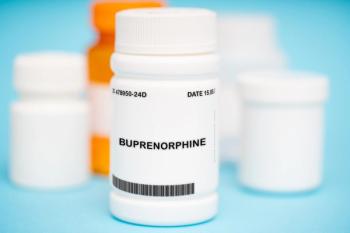
Capital Capsules
New developments in the Capital
CAPITAL CAPSULES
Privacy rules will hurt patient care, pharmacy groups warn
AMCP, APhA, ASCP, and NACDS have urged the Bush Administration to delay implementation of medical privacy regulations issued in the last days of the Clinton presidency. They expressed particular concern about signed patient-consent forms being required before a provider could use or disclose identifiable information for treatment, payment, and health-care operations. "This requirement will have serious consequences for many patients requiring medications," said the four groups, part of a coalition of 39 health-care and employer organizations. "Pharmacists will not be able to fill or refill prescriptions for consumers, and prescriptions called in by physicians will not be filled, unless a written consent is on file at the pharmacy. The requirement will create delays for patients, for parents of sick children, and others who will have to come to the pharmacy to sign consents before the pharmacist can fill or refill a prescription."
The groups also questioned how they would be able to obtain the written consents by the deadline of Feb. 26, 2003. "How providers will obtain consent forms from over 200 million Americans by the compliance date is a staggering problem that could interfere with everything from refilling routine prescriptions to sending out reminder notices about appointments, conducting disease management programs, maintaining quality assurance programs, doing claims adjudication, medication compliance, and so on," they wrote HHS secretary Tommy Thompson.
Pressure growing on President to save Rx reimportation law
A bipartisan band of 16 lawmakers has called on President Bush to reinstate the drug reimportation law that the Clinton Administration first supported then declined to implement because of concerns that the safety of the Rxs could not be guaranteed and that there would not be savings for U.S. patients. At the same time, rookie Sen. Debbie Stabenow (D, Mich.) has introduced legislation to address those concerns. Stabenow, who rode Rx-buying bus trips to Canada to an upset victory in November, also would make personal importation officially legal by putting the FDA's discretionary enforcement policy into law. Her bill would eliminate the five-year "sunset" provision and direct HHS to come up with rules for personal importation by mail. The nine Republicans and seven Democrats told Bush that the reimportation law as passed gives HHS all the authority it needs to ensure that the FDA-approved Rxs brought into the United States are safe and cost-effective.
Association merger unites generics field
The National Association of Pharmaceutical Manufacturers has agreed to merge with the Generic Pharmaceutical Association, giving the off-patent Rx industry a unified voice for the first time. GPhA was created last summer when the National Pharmaceutical Alliance and the Generic Pharmaceutical Industry Association joined forces. NAPM was the only one of the three that wanted Congress to enact user fees for the generic industry modeled after those the branded industry accepted. Those user fees have proven successful in reducing approval times.
Michael F. Conlan
Washington bureau chief
Mike Conlan. Capital Capsules. Drug Topics 2001;4:15.
Newsletter
Pharmacy practice is always changing. Stay ahead of the curve with the Drug Topics newsletter and get the latest drug information, industry trends, and patient care tips.























